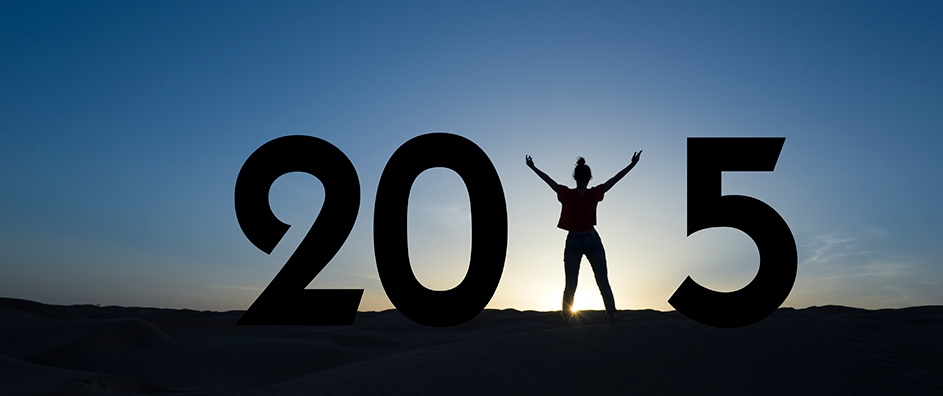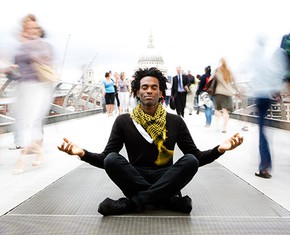The views expressed in our content reflect individual perspectives and do not represent the authoritative views of the Baha'i Faith.
…the object of a new year is not that we should have a new year, but rather that we should have a new soul. – G.K. Chesterton
Congratulations–you’ve lived through yet another one of Earth’s trips around the Sun. It’s two thousand fifteen, and it’s time, in many of the world’s cultures, to make a few New Year’s resolutions.
Last year we started a tradition here at BahaiTeachings.org, with a January 1st article that included nine spiritual resolutions. This year, in the interests of developing that “new soul” Chesterton recommends, we’ll suggest some general recommendations from the Baha’i teachings—actually, just a single sentence—to serve as a guide to making more spiritual resolutions. Rather than the standard New Year’s promises to ourselves: get more exercise, lose weight, or vaguely resolve to just try to be a better person—we’ll contemplate a much higher and loftier set of inner goals.
Since the ultimate goal of all Faiths revolves around the development of the human spirit, we’ll take a look at the inner personality characteristics of an enlightened, well-adjusted and happy soul.
First, though, let’s review: how did this resolution thing get started, anyway? It may surprise you, but just about every religion and ancient culture has some form of New Year’s resolutions.
In fact, we call it January for that very reason. As each Gregorian year began, the ancient Romans made promises of self-improvement to Janus, their god of beginnings and passages—hence the name January. That self-improvement tradition probably originated with the even more ancient Babylonians, who promised their gods at the beginning of each year that they would pay their debts and return things they’d borrowed.
During the Jewish New Year, called Rosh Hashanah, as the calendar passes through the High Holidays and ends in Yom Kippur, Jews reflect on their failings and wrongdoings during the past year, and then resolve to seek forgiveness–and offer it to others, too.
Many Christians also see New Year’s as a time for reflection and resolution–Catholics and Anglicans have Midnight Mass, designed to help believers resolve to make their new year a more spiritual one than before; while several Protestant traditions include watchnight services, when they prepare for the year ahead by reflection, prayer and making resolutions. John Wesley, who founded the Methodist church, started their watchnight services in 1740, not only to offer an alternative to New Year’s Eve revels, but to sing hymns, read from scripture and resolve to lead a more spiritual life in the year ahead. Wesley called these watchnight observances Covenant Renewal Services, because they symbolized the individual’s renewal of a personal Covenant with the Creator.
In African-American churches, watchnight first took on a special meaning on New Year’s Eve 152 years ago, when black American slaves crowded into their churches to await and celebrate Abraham Lincoln’s signing of the Emancipation Proclamation on January 1, 1863.
The Baha’i New Year, which happens on the first day of Spring—the Vernal Equinox in the Northern Hemisphere–coincides with the end of an annual period of fasting, reflection and prayer, when Baha’is review their own spiritual development during the past year, and commit to abstain from selfish desires, improve their spiritual lives and serve humanity.
In his first book, written in 1875, Abdu’l-Baha recommended adopting a committed inner resolution to develop these attributes of human perfection:
…to love God by loving His servants,
to exercise mildness and forbearance and calm,
to be sincere, amenable, clement and compassionate;
to have resolution and courage, trustworthiness and energy,
to strive and struggle,
to be generous, loyal, without malice,
to have zeal and a sense of honor,
to be high-minded and magnanimous,
and to have regard for the rights of others. – Abdu’l-Baha, The Secret of Divine Civilization, p. 40.
Can you imagine a more beautiful and elevated set of New Year’s resolutions?
These lofty goals ask us to work on our own characters, to develop the spiritual attributes that lead to the exaltation and immortality of our own souls. They call us to a higher plane, toward the development of inner beauty and grace. They summon the human soul to its glorious destiny.

















Comments
Sign in or create an account
Continue with Googleor